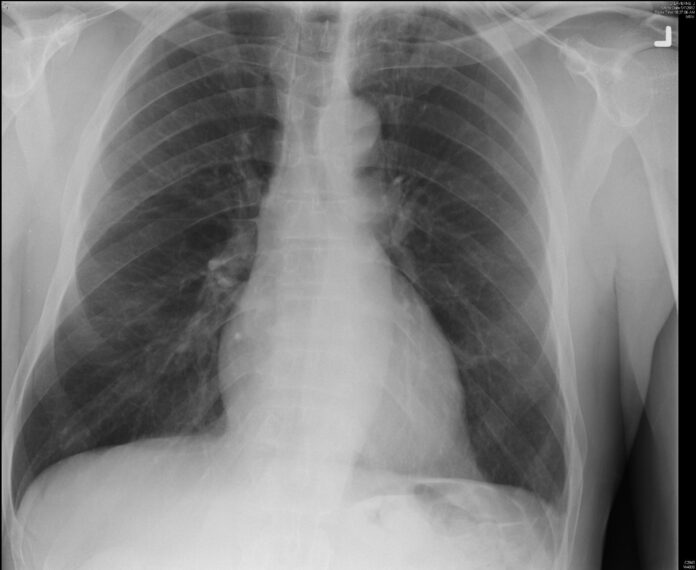
Wegenerʼs granulomatosis, also known as granulomatosis with polyangiitis (GPA), is a rare and potentially serious autoimmune disorder that causes inflammation of the blood vessels in various parts of the body. This condition primarily affects the respiratory tract, kidneys, and other organs, leading to a range of symptoms that can be debilitating if not properly managed.
Recognizing the symptoms of Wegenerʼs granulomatosis is crucial for early diagnosis and treatment. By understanding the signs and symptoms of this condition, individuals can seek medical attention and begin appropriate interventions to alleviate their symptoms and prevent disease progression.
Respiratory Symptoms
One of the most common sets of symptoms associated with Wegenerʼs granulomatosis involves the respiratory system. Individuals with this condition often experience coughing, shortness of breath, chest pain, and bloody sputum. As the inflammation affects the airways and lung tissue, these symptoms can significantly impact an individual’s ability to breathe and perform daily activities. In some cases, individuals may also develop sinusitis and nasal ulcers, which can cause chronic congestion and discomfort.
If you or a loved one are experiencing persistent respiratory symptoms, it’s important to seek medical attention promptly. Early intervention can help manage symptoms and prevent long-term damage to the lungs and airways.
Renal Symptoms
Another set of symptoms commonly seen in individuals with Wegenerʼs granulomatosis involves the kidneys. This condition can cause inflammation of the small blood vessels in the kidneys, leading to symptoms such as blood in the urine, proteinuria, and decreased kidney function. If left untreated, kidney damage can progress, leading to chronic kidney disease and eventual kidney failure.
If you notice any changes in your urinary habits or experience blood in your urine, it’s crucial to consult with a healthcare professional. Prompt treatment and ongoing management are essential for preserving kidney function and overall health.
ENT Symptoms
Ear, nose, and throat (ENT) symptoms are also common in individuals with Wegenerʼs granulomatosis. This may include symptoms such as recurrent ear infections, hearing loss, nasal congestion, and sinus pain. In some cases, individuals may develop nasal ulcers, septal perforation, and saddle-nose deformity due to the chronic inflammation of the nasal passages and surrounding tissues.
ENT symptoms can significantly impact an individual’s quality of life, so seeking appropriate medical care is essential. By addressing these symptoms early, individuals can receive interventions to mitigate discomfort and preserve their ENT health.
Ocular Symptoms
Some individuals with Wegenerʼs granulomatosis may experience ocular symptoms, such as redness, pain, and vision changes. Eye inflammation, known as uveitis, can occur and lead to complications if not addressed promptly. Recognizing and addressing ocular symptoms is crucial for preserving vision and overall eye health in individuals with this condition.
If you experience any changes in your vision or eye discomfort, it’s important to see an eye care professional for an evaluation. Early intervention can help prevent long-term complications and protect your vision.
Joint and Muscle Symptoms
Joint and muscle symptoms are also common in Wegenerʼs granulomatosis, leading to pain, stiffness, and decreased mobility. Individuals may also develop muscle weakness and neuropathy due to nerve inflammation. These symptoms can significantly impact an individual’s ability to perform daily activities and can contribute to decreased quality of life if not properly managed.
If you are experiencing joint or muscle symptoms, it’s important to consult with a healthcare professional for a thorough evaluation. Treatment options are available to help manage pain, improve mobility, and prevent long-term complications.
Skin Symptoms
Wegenerʼs granulomatosis can also affect the skin, leading to symptoms such as purpura, nodules, and ulcers. Skin involvement in this condition can cause discomfort and affect an individual’s self-image. Recognizing and addressing skin symptoms is essential for preventing infection and promoting healing.
If you notice any changes in your skin, it’s important to seek medical attention promptly. Dermatological interventions can help manage symptoms and prevent long-term complications related to skin involvement in Wegenerʼs granulomatosis.
Cardiovascular Symptoms
In some cases, individuals with Wegenerʼs granulomatosis may experience cardiovascular symptoms, such as chest pain, palpitations, and shortness of breath. Inflammation of the blood vessels in the heart and surrounding tissues can lead to complications if not properly managed. Recognizing and addressing cardiovascular symptoms is crucial for preventing long-term damage to the heart and preserving overall cardiovascular health.
If you experience any concerning cardiovascular symptoms, it’s important to seek medical attention promptly. Cardiac evaluations can help identify any potential complications and guide appropriate interventions to protect your heart health.
General Symptoms
In addition to the specific symptoms mentioned above, individuals with Wegenerʼs granulomatosis may experience general symptoms such as fever, fatigue, and weight loss. These nonspecific symptoms can be indicative of underlying inflammation and immune system dysregulation. Identifying and addressing these general symptoms is essential for overall disease management and quality of life improvement.
If you are experiencing persistent general symptoms, it’s important to consult with a healthcare professional for a comprehensive evaluation. Addressing these symptoms early can help identify underlying issues and guide appropriate interventions for symptom management.
Neurological Symptoms
While less common, some individuals with Wegenerʼs granulomatosis may experience neurological symptoms such as headaches, dizziness, and nerve pain. Inflammation of the blood vessels in the nervous system can lead to complications and neurological deficits if not addressed promptly. Recognizing and addressing neurological symptoms is crucial for preserving nerve function and overall neurological health.
If you experience any concerning neurological symptoms, it’s important to seek medical attention promptly. Neurological evaluations can help identify any potential complications and guide appropriate interventions to protect your nervous system.
Gastrointestinal Symptoms
In some cases, individuals with Wegenerʼs granulomatosis may experience gastrointestinal symptoms such as abdominal pain, diarrhea, and gastrointestinal bleeding. Inflammation of the gut and surrounding blood vessels can lead to complications if not properly managed. Recognizing and addressing gastrointestinal symptoms is crucial for preventing long-term damage to the digestive system and preserving overall gastrointestinal health.
If you experience any concerning gastrointestinal symptoms, it’s important to seek medical attention promptly. Gastrointestinal evaluations can help identify any potential complications and guide appropriate interventions to protect your digestive system.












